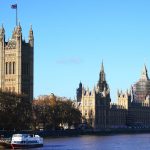The Scottish Greens are close to a deal that would see them enter government for the first time in British history.
Green MSPs will share power if they can finalise an agreement with Nicola Sturgeon’s SNP administration.
Talks have been ongoing between the two parties about a formal power-sharing arrangement in Scotland.
It would stop short of a full coalition and would, instead, be a “cooperation agreement” that allows for unity on policies where they agree and divergence in areas where they do not.
A source close to the talks told Sky News that civil servants had also been involved in discussions, with regard to “where trails of responsibility will lie.”
Similarities have been drawn with the deal between New Zealand’s Greens and the country’s ruling Labour Party, in which Green Party MPs have taken on ministerial portfolios.
SNP cabinet ministers are due to finalise their position in a Friday morning cabinet meeting.
If a deal is reached, a public announcement is expected later in the day although the Scottish Greens would put the proposal to its party members for ratification at a meeting on 28 August.
Currently, Nicola Sturgeon’s SNP is Holyrood’s ruling party but is one seat short of an overall majority of MSPs.
In the past, the independence-supporting Scottish Greens have lent her their votes on an ad-hoc basis.
A formal agreement will deliver the numbers necessary for increased certainty in matters of government, from passing budgets to laying the ground for another independence referendum.
It should also enhance the Scottish government’s green credentials in the run-up to COP26, the UN climate change summit which will take place in Glasgow in November.
For their part, the Scottish Greens will flex their muscles on policy priorities around the climate crisis, in particular, on which they have been critical of the SNP.
If any of their MSPs are given ministerial positions as part of a deal, expect them to bang the cabinet table on low emission zones, investment in renewables, a ban on selling new cars that on petrol and diesel by 2026, as well as assurances around the net-zero transition.






















